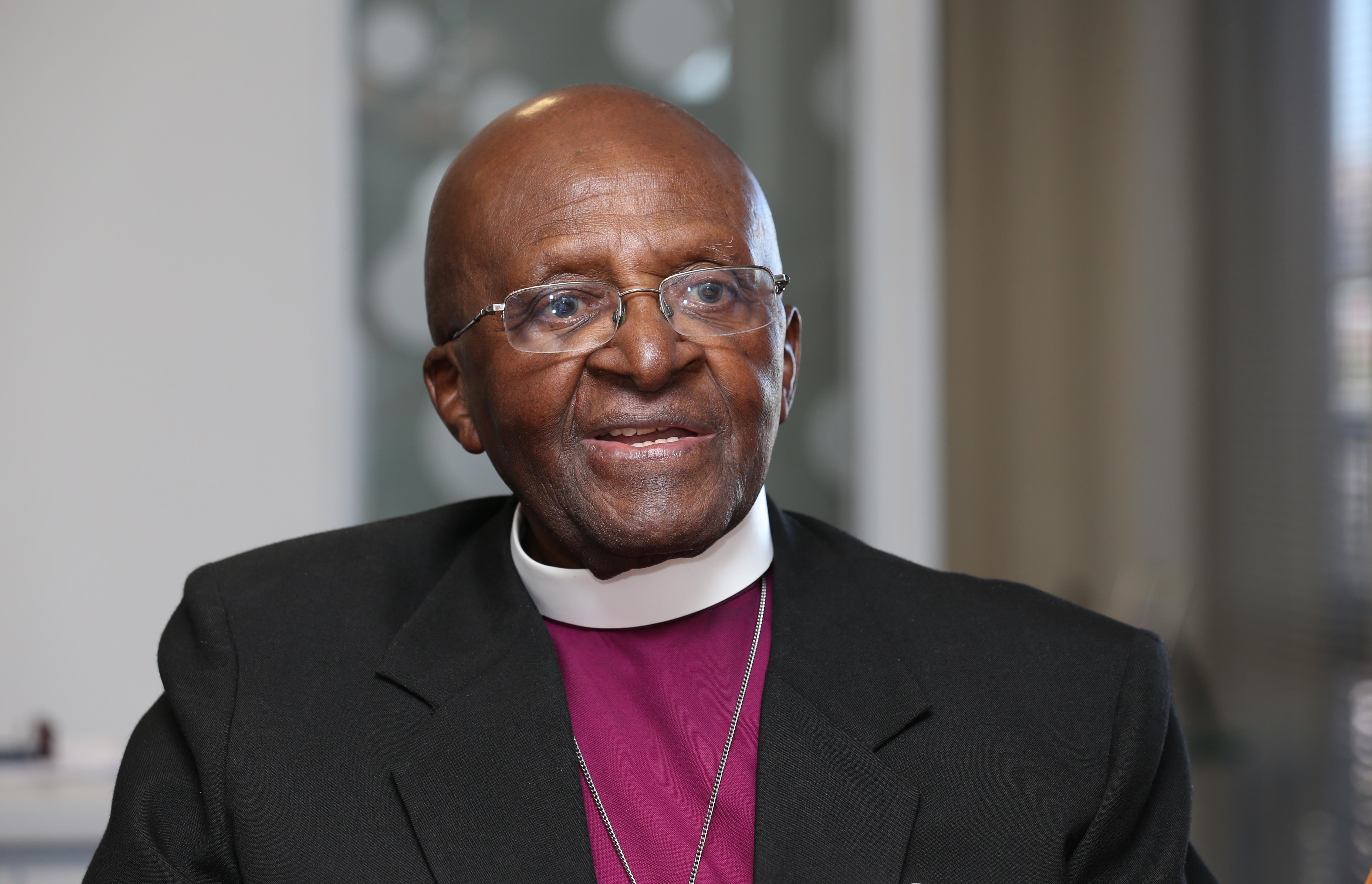Desmond Tutu was a born preacher who exposed the sheer stupidity of apartheid
Very few have made such a difference to their nation and to history, writes Denis MacShane


Your support helps us to tell the story
From reproductive rights to climate change to Big Tech, The Independent is on the ground when the story is developing. Whether it's investigating the financials of Elon Musk's pro-Trump PAC or producing our latest documentary, 'The A Word', which shines a light on the American women fighting for reproductive rights, we know how important it is to parse out the facts from the messaging.
At such a critical moment in US history, we need reporters on the ground. Your donation allows us to keep sending journalists to speak to both sides of the story.
The Independent is trusted by Americans across the entire political spectrum. And unlike many other quality news outlets, we choose not to lock Americans out of our reporting and analysis with paywalls. We believe quality journalism should be available to everyone, paid for by those who can afford it.
Your support makes all the difference.Archbishop Desmond Tutu, who has died aged 90, was the biggest contribution England’s deeply conservative Anglican church has made to the world in the last half-century.
In today’s language, he was the most “woke” cleric the ancient Anglican church ever produced – railing against the opposition to gay marriage of reactionary archbishops, and comparing Israeli denial of core Palestinian rights to apartheid.
His name will be forever linked with the long struggle to end the colonial racism of apartheid. As the European empires were slowly giving up racist rule and Martin Luther King was tackling racism in America, the white supremacists of South Africa clung firmly to their oppressive rule.
With Nelson Mandela locked in prison after the disastrous decision of the African National Congress in exile to endorse armed struggle and to look to links with Soviet imperialism for ideological and financial support, it was all too easy for Tory MPs and the right-wing press to present the anti-apartheid struggle as a pillar of global communism. Tutu, in his magnificent purple robes of the high Anglican tradition of theatrical dressing up, reduced the allegations from English Tories and anti-communists in the US to the idiocies they were.
He was a born preacher, using humour as much as sermonising to expose the sheer stupidity of apartheid. “When the white man arrived in South Africa, we had all the land and they had all the bibles,” he once said. “They said to the Africans, ‘Fall to your knees and pray.’ When we stood up, we had all the bibles and they had all the land.”
He mixed the verve and verb of the English language to expose the deep evil of apartheid racism at a time when Margaret Thatcher and the British Foreign Office were straining every diplomatic muscle to protect the money the City of London – as well as giant gold, diamond, coal and iron ore global firms, such as Anglo-American and De Beers – made from racist slavery.
Tutu began adult life as a teacher but quickly realised, after the white supremacists strengthened the rules of apartheid from 1950 onwards, that a socially active black African teacher would not survive long. He opted instead for the priesthood, training in London, where he encountered liberation theology.
He returned to South Africa committed to non-violence, and in effect used the protection of his priesthood to become a full-time political activist. He chaired the South African Council of Churches between 1978 and 1985 and was awarded the Nobel Peace Prize in 1984.
Apartheid South Africa was evil but its ideology allowed some space for legal, religious and peaceful challenges. In contrast to communist China and Russia, where Nobel Laureates are deliberately targeted and broken in prison, the apartheid rulers of South Africa had to pretend to live by rule of law and allow travel and other rights in the 1980s to anti-apartheid campaigners such as Tutu, or trade union leaders, such as Cyril Ramaphosa, now president of South Africa.
The world looked to the moral leadership of Mandela, who was confined to his prison cell on Robben Island, but in conferences and meetings with political leaders in Washington or Europe, and regularly in Britain, they heard the voice of Desmond Tutu denouncing apartheid.
To keep up to speed with all the latest opinions and comment sign up to our free weekly Voices newsletter by clicking here
He never gave up. He served as chair of the Truth and Reconciliation Commission, set up by Mandela in 1996, but also said that “there is less freedom and personal liberty in most of Africa now than there was in the much maligned colonial days”. In 2013, he said he could no longer vote for the ANC under the disgusting, corrupt rule of Jacob Zuma.
To meet him was to meet the least self-important archbishop imaginable, as he engaged in vivid conversation about every topic of the day. There are very few Anglican archbishops who have made such a difference to their nation and to history – and all for the good.
Denis MacShane is a former Labour MP and FCO minister. He worked in South Africa in the 1980s with independent black trade unions and together with Martin Plaut and David Ward wrote ‘Power! Black Workers, their Unions and the Struggle for Freedom in South Africa’
Join our commenting forum
Join thought-provoking conversations, follow other Independent readers and see their replies
Comments